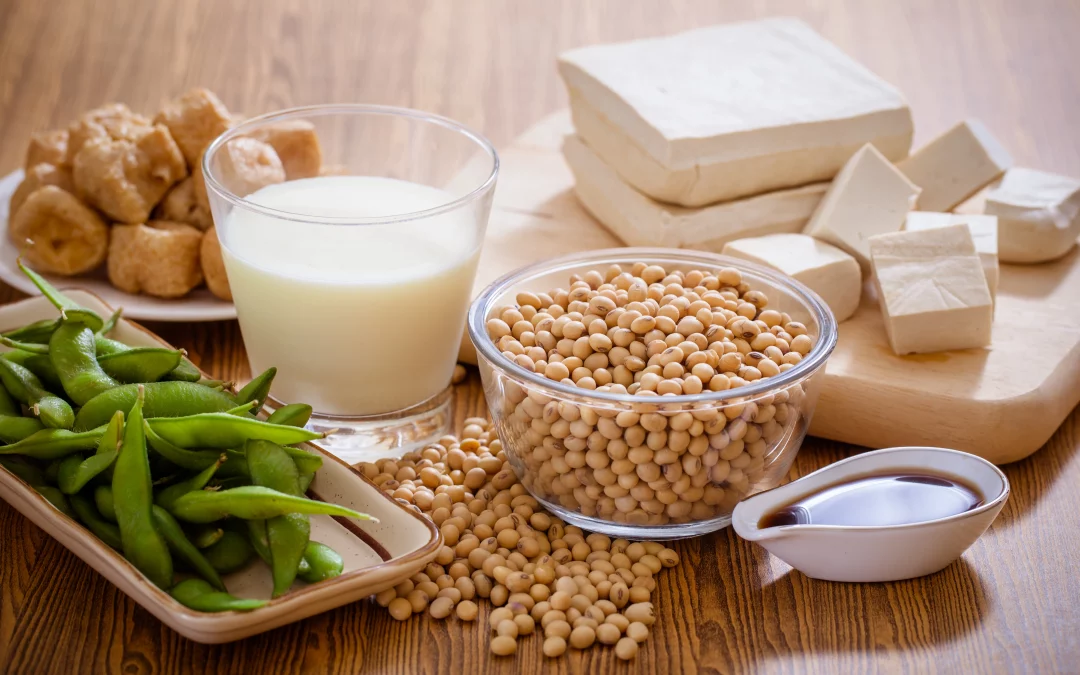There are currently a lot of mixed messages about whether soy is considered to be healthy or harmful, so let’s dig a little deeper into the current science. But before we do so it’s important to note that science is ever-changing and evolving and what was once considered true 10 years ago will differ today and even 10 years from now. It’s also important that when looking at the science that we take
into consideration studies conducted on humans as a lot of the previous studies have been conducted in vitro (in a test tube/culture dish) or in animals which have different metabolic processes to humans.
Isoflavones and Estrogen: What’s the deal?
Isoflavones are compounds found in soy products that have a similar chemical structure to ‘Estrogen’ which is a hormone found in the body. Due to this similar structure, this allows them to bind to estrogen receptors in the body. For this very reason, many people tend to avoid soy as they are concerned that soy will act like the hormone estrogen in the body and therefore exacerbate its effects.
However, what they don’t know is that there are many different estrogen receptors in the body and that isoflavones bind to only ONE type of receptor (not to all of them). It’s also important to note that the effect of this binding is also a lot weaker when compared to the binding of estrogen.
Soy and the risk of breast cancer:
Previously it was believed that soy increased the risk of breast cancer as previously shown in animal studies, however, we now know that humans breakdown and absorb soy in a different way to animals and therefore based on human studies the overall evidence shows that consuming soy does not increase the risk of cancer. In fact, moderate soy consumption has been shown to be protective against
breast cancer. Furthermore, there is good evidence to suggest that moderate soy intake can reduce LDL cholesterol (bad cholesterol) and reduce the risk of cardiovascular disease.
Soy and male fertility:
Previous studies of weak evidence have suggested that the estrogen-like effect of isoflavones may reduce testosterone levels in men and reduce fertility. However, current studies of higher quality evidence have shown that neither soy foods or isoflavone supplements affect male fertility. Therefore, soy is considered to be safe for men to consume.
Soy and thyroid function:
Soy consumption has not been shown to be harmful to individuals with an under-active thyroid (hypothyroidism). However, soy may interfere with the absorption of Levothyroxine (a drug used to treat hypothyroidism). In saying this, it is suggested that individuals on thyroid hormone medications avoid high doses of soy protein and seek further guidance from their doctor. Soy products, in general, do not appear to have any other impacts on the thyroid.
In summary, soy is a highly nutritious food that provides an array of health benefits. Based on the current science-based evidence, consuming soy in moderation as part of a balanced diet has not been shown to be harmful.
By Annalise Farah, Accredited Practicing Dietitian (APD) – BMedSc & MND
If you have any questions regarding this article or would like to know more, you can contact Annalise via email [email protected] or via Instagram @annalise.equ

